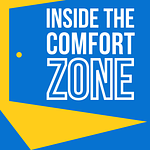Welcome to the third installment of our "Get Things Done The Easy Way" series. In this episode, I delve deeper into overcoming struggles with productivity by addressing the root causes behind procrastination and the importance of realigning our actions with our desires. I discuss how often, our reluctance to act stems not from a lack of discipline, but from misaligned desires and actions. This misalignment leads to unnecessary self-criticism and the feeling of being stuck. I emphasize the role of self-compassion over self-judgment and explore different ways to approach tasks that initially feel burdensome or uninspiring.
(Keep reading for a written version of this podcast episode, and stay tuned for the next parts of this series where we delve deeper into making ease a permanent part of your productivity system!)
Key takeaways from this episode include:
🗝 Align Your Actions with Your Desires: I talk about the importance of doing what you want, not what you feel you must or should do, to achieve genuine productivity.
🗝 Redefine Procrastination: Learn to see procrastination not as a personal flaw but as a misalignment between what you think you should be doing and what you actually find meaningful.
🗝 Embrace Self-Compassion: Rather than getting caught up in self-criticism, practicing self-compassion can significantly enhance your emotional and mental well-being, helping you to be more productive.
🗝 Experiment with Approaches: I encourage trying different methods to find what truly works for you, I share a personal example with running, where changing up routines can renew your interest and energy.
For a bit of a fun fact: Did you know that the way you talk to yourself can impact your productivity more than the external pressures or distractions? I expand on this, how internal dialogue plays a crucial role in how we perceive and handle our tasks, in the full episode.
To discover more about effectively getting things done with ease and joy, I invite you to listen to the full episode.
🙏 Your Participation Counts
I would absolutely love to hear from you. Share your thoughts, insights, or even your results from the exercise in the comment section or through a private DM. Maybe the episode sparked a new idea, or you have a story to share about how shifting your focus has transformed your productivity. I encourage you to hit reply and let me know your thoughts. Your input could shape our future episodes!
What if I STILL don’t feel like doing something?
By now it’s perhaps becoming clear to you that you don’t HAVE to do anything and that if you only did what you wanted to do you could still get things done. Good. This is you waking up to a different way of approaching productivity and performance. And I’m sure you’ve been experimenting with doing more of what you want to do and getting the things you want done. Perhaps you’ve even started making progress towards your goals in an effortless and easier way than before.
Eventually you will, if you haven’t already, experience a situation where you won’t feel like doing something. And this might be a moment when you start to worry, and even question how you’ll get things done when you don’t feel like doing them. This is a natural experience and an expected one. It’s an invitation to go deeper into the understanding of what it means to get things done the easy way.
In a situation where you find yourself feeling like you still don’t want to do something, the experience will often give rise to a story, a story of character flaws, lack of discipline, weakness, procrastination or a deluge of other themes. And what’s going on is that what you’re thinking of getting done and what you’re actually getting done isn't aligned – there’s a disconnect with what you want and what you’re doing.
This is often referred to as procrastinating, meaning to delay or postpone taking action. And when making procrastination an issue of a character flaw or of low motivation then you’ll approach it as such, leading to personal growth, self-help, hacks, accountability or external pressure being needed and applied. NOW you’re spending time addressing any of these things BEFORE you can do the thing you intended to do, still NOT DOING what you wanted to do. AND, there’s a theme of you not being enough or capable as it is, making you feel even worse.
But, what if what is going on is simply about things you think you should do but that you’re not doing or doing fast enough. And if you simply aligned what you’re doing with what you want to be doing then you’d feel on purpose again and things would return to being easy, joyful and good again. But, that’s not what’s happening, is it? No. Instead in your mind you're making up all kinds of stories, making judgements and assumptions, labelling and evaluating, all making you feel worse and worse.
Please stop it. Don’t make up all these stories or labels – they’re not helping. In fact, they’re contributing to your not getting anything done.
The Need To Escape Your Discomfort
I’ve come to see how distractions and procrastination are about escaping discomfort. It’s our minds looking to avoid feeling bad, so it will occupy itself with things which take focus away from the uncomfortable situation. And so, when you feel bad your mind will look for ways to distract itself from feeling that way, and what the mind finds more pleasant might not necessarily be the thing you intended to get done, especially when experiencing a bit of struggle getting it done. Then judging and criticising yourself will only make things worse, making you FEEL WORSE and the NEED FOR DISTRACTION even stronger!
In my experience, and research is backing this up, something that has a significant role in whether you enter into an experience of anxiety or depression is your capacity for self-compassion. Rather than being self-critical or self-judgemental, when you practise self-compassion you’re better able to avoid getting stuck feeling anxious or depressed. And your ability to practise self-compassion and its effect on your mental wellbeing have shown to matter more than the other typical factors, like traumatic life events, family mental health history, low social status, loneliness or a lack of social belonging. That’s how important it is to apply some understanding and compassion towards yourself.
As I mentioned before, what if all that is going on is simply you thinking that you should be doing something which you’re not doing or that it should be done faster than how it’s being done. Then, when you realign what you’re doing with what you want to be doing your troubles reside.
Do It Differently And Change It Up
Sometimes, one of the reasons for us not feeling like doing something, despite it being something we actually would enjoy, is because our approach is wrong. The way that we’re approaching the activity just isn’t the best way for us, at this moment. Instead of being stubborn and employing vast amounts of willpower or discipline to keep approaching your activity in the same manner, you could pay attention to the disconnect between what you’re thinking of doing and what is actually getting done. And when you do, perhaps you discover that there are other ways to do the things you set out to do.
For example, I’m a runner and I love running. Sometimes I talk with other people about running, and they sometimes exclaim that they can’t run! It’s not that they CAN’T run, it’s that they don’t ENJOY running. In a situation like this, I like to go on a little exploration, and I like to inquire about their procedures for running. What I’m listening for is where they might introduce other approaches to running. Running isn’t just ONE THING. There’s fartlek, there’s long-distance running, there’s sprinting or interval running, there’s running track, or trail running, there’s running alone or running with a partner, there’s hill training and there’s participating in races. In short, running can be done in many different ways, and sometimes our original approach simply isn’t a good match for us. So change it up – try something different and new – experiment and be curious. This action alone can sometimes open yourself up to getting things done once you find what works for you.
Define Things On Your Own Terms
Something that can negatively affect your level of motivation is when what you’re about to do lacks clarity or feels overwhelming. This will scare your mind, since it makes it hard for the mind to predict or protect you from danger. And so with a heightened level of fear, NOT making a mistake and possibly escaping seems like a good idea, leading to things not getting done.
How you avoid this situation becoming worse than it has to be, is by making sure that what you’re doing is clearly defined and broken into manageable steps or parts. On the topic of defining, a habit that I’m inviting you to explore is to more often make sure that you define things in your own way, that you pursue things on your own terms. Take success as an example, what is YOUR definition of success? Are you clear on this? When would you know that you’ve achieved your goal for success? Or what’s your definition of a healthy relationship? When you don’t make this clear to yourself, don’t be surprised if you end up somewhere you didn’t expect to be, and even worse, you might not even like where you find yourself.
Having clarity on what you want, and what your definition of it is will help you build motivation and momentum towards what it is you want to get done.
Make Sure It’s a Choice — There Always Is One
A final pitfall to avoid in order to do more of what it is that you want to do is to make sure that what you do really IS A CHOICE. I talked about that in the previous episode in this series, about how there’s no MUSTS or SHOULDS but only CHOICES. And so when you find yourself not FEELING like doing something, then take a step back and make sure that you’re moving towards what you want to do with a sense of CHOICE, rather than a sense of obligation, duty or guilt. Go back to the previous (episode) article and remind yourself of how to always find the choice that is being made which will help you increase your level of motivation and help do the things you want to do.
In Conclusion
Even with the best of intentions, you will most likely end up experiencing situations when you simply don’t feel like doing them. And there are many good reasons for this being the case. And what it often comes down to is that what you picture in your mind getting done isn’t what you’re actually doing. And whenever this is the case, focus on aligning what you do with what you want to do. Let yourself do more of what it is that you WANT to do, instead of the things that you think you HAVE to do or SHOULD do. And support on this can be found in all the previous articles of this series, and in this article I did address some helpful tips on how to deal with not feeling like doing something. Please remember, as you practise getting things done the easy way, make sure to also practise self-compassion. It is such a linchpin habit for when it comes to getting more things done. Be kind to yourself and be supportive. Here’s to your success!
Please send me a DM sharing your insights or leave a comment helping others navigate their challenges with not feeling like getting things done.
Music from #Uppbeat
https://uppbeat.io/t/prigida/thermal
https://uppbeat.io/t/mountaineer/far-far-away
https://uppbeat.io/t/mountaineer/sleeplessness
https://uppbeat.io/t/zayner/sand-castles
https://uppbeat.io/t/prigida/burble












Get Things Done The Easy Way - Part Three